Steve Wynn - Interview
by John Clarkson
published: 22 / 11 / 2002
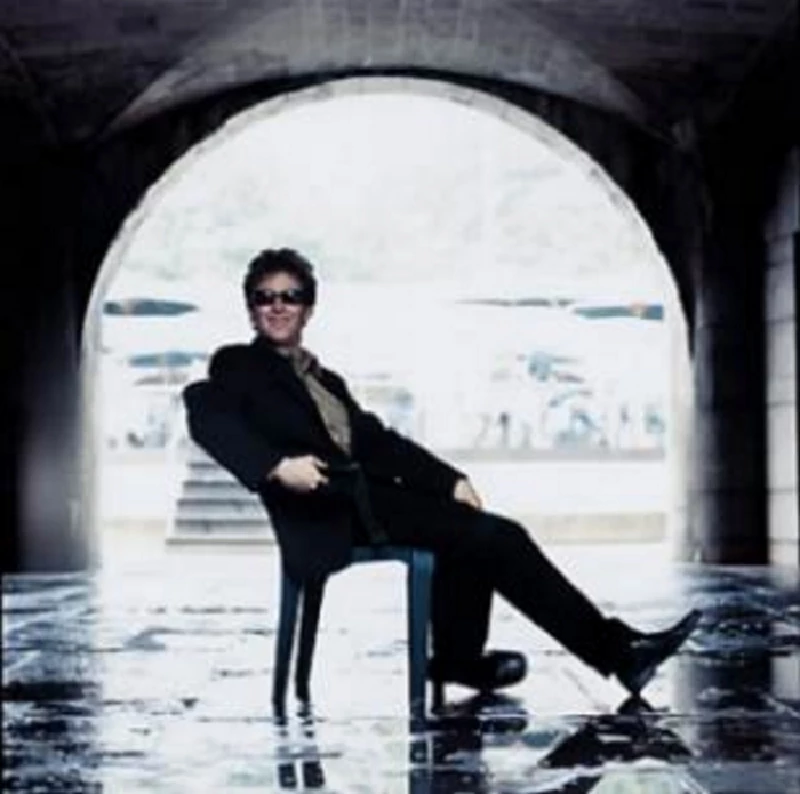
intro
Steve Wynn fronted the Dream Syndicate, one of the most controversial groups of the 80's, and since then has gone on to an eclectic solo career in which he has flitted through a variety of genres. He talks to John Clarkson about his long musical career
There is scene in the Washington DC crime writer George Pelecanos’ second novel , ‘Nick’s Trip’, in which his Private Investigator, Nick Stefanos, works out while listening to the Dream Syndicate’s ‘Medicine Show’. It, and all of Pelecanos’ novels, are full of musical references. Stefanos, the protagonist of three of his books, always seems to have a tape on his stereo, as he drives from one seedy Washington location to another, or when he stands managing the bar in his other job as a bartender at the unsalubrious the Spot. There is nothing perhaps unusual about this in itself , but it is ironic that the hedonistic, self-destructive and alcoholic Stefanos should, in this rare moment of calm , choose the Dream Syndicate, one of the most abrasive bands America has ever produced, to listen to. As an in-joke, it is a good one, and as an indication of how far Stefanos has fallen from grace, and how far further yet he has to fall in the final book in the’ Stefanos trilogy ‘Down Where the Dead Men Go’ (The first book in the series, which preceeds ’Nick’s Trip’, is ‘A Firing Offense’), Pelecanos makes his point to those who know of the Dream Syndicate particulary aptly. Vocalist and guitarist Steve Wynn previously released singles with two other acts, the Suspects and 15 Minutes, before he formed the Dream Syndicate in Los Angeles in 1982 with Kendra Smith (bass), Karl Procoda (guitar) and Dennis Duck (drums). The group, a part of the infamous LA Paisley Underground scene which also featured the Bangles and True West, set out from the start to be confrontational and difficult, playing thrashy, violent Velvet Underground inspired guitar rock at a time in which most other bands of the era were experimenting with poppy synthesisers. The band’s intense debut album , ‘The Days of Wine and Roses’, which has recently been rereleased and remastered with extra tracks on Rhino records, came out late in 1982. They followed this with the equally dark ‘Medicine Show’ in 1984. Shortly before the second album’s release, Smith quit. The group would carry on amidst various line-up changes and record another two studio albums, 1986’s ‘ Out of the Grey’ and 1988’s ‘Ghost Stories’ , before finally breaking up at the end of that latter year. While the group’s first two albums were inspired by punk, ‘Out of the Grey’ and ‘Ghost Stories’ had a more commercial rock sound, and were influenced by Neil Young and Crazy Horse. Wynn, who moved from Los Angeles to New York in the early 90’s, has since gone on to carve out a highly successful solo career, and is one of the very full-time independent musicians who has been able to make a full-time career out of music. Always inventive, he has released a succession of solo albums which have incorporated a variety of styles, and these include ‘Kerosone Man’ (1990), ‘Dazzling Display’ (1992), ‘Fluorescent’ (1994), ‘Take Your Flunky and Dangle’ (1994), ‘Melting in the Dark’ (1996), ‘Sweetness and Light’ (1997), ‘My Midnight’ and ‘Here Comes the Miracles’ (2001). The latter is the first double album of Wynn’s career. He has also worked with Gutterball, a garage rock band and occasional side project which also features Bryan Harvey from the House of Freaks, and Stephen McCarthy, formerly of the Long Ryders, and has recorded with them an additional two albums, ‘Gutterball’ (1994) and ‘Weasel’ (1995). 2002 has been an especially busy year for Wynn. He toured America in March with the recently reformed Concrete Blonde. He then then came over to Britain in June with the Willard Grant Conspiracy’s Robert Fisher, Lambchop’s Deanna Varagona and the Silos’ Walter Salas-Humara on the Songwriters’ Circle tour, which found all four musicians taking it in turn to perform their songs and helping out on each other’s numbers. Wynn has also recently finished recording his latest solo album, 'Static Transmission', which was recorded, like ‘Here Come the Miracles’ at the Wavelab studio in Tucson, Arizona. It will come out in late February. Pennyblackmusic caught up with Wynn to talk to him about his extraordinary 25 year musical career PB : You released your very first single, ‘That’s Why They Always Say’ with the band, the Suspects, in 1979. Who were they ? SW : I grew up in Los Angeles. I was born and brought up there and, when I was 17, I went away to college in Davis, California to study rhetoric. I hoped to become a sportwriter. That was in 1977, right when punk rock was breaking out. Punk rock excited me, and, when I found other people there that felt the same way, we set up our own band,which was the Suspects. It was not the greatest band ever, but it was what you would have expected from young college kids enamoured with punk rock. We sounded like a cross between Blondie and the Talking Heads. PB : Were the Suspects very much a learning experience for you ? SW : Completely ! I had been playing in bands since I was 9 years old. but mostly the type of bands that play a party, or a school assembly, or something like that. The Suspects were the first band that I had played in which we packed up a van and went to other towns to play gigs We,of course, did the single as well, which again at that stage was a new thing for me to do. PB : Were you the singer ? SW : No, I wasn’t. I was the songwriter for the band and the rhythm guitarist, and the singer was Kendra Smith, who later on became a member of the Dream Syndicate and then the singer for Opal and Clay Allison. Russ Tolman, who ended up in True West and who also has made his own solo records, was the lead guitarist, while Gavin Blair, who became True West’s singer, played drums. When the whole Paisley Underground thing was happening, True West and the Dream Syndicate started to get a lot of attention, and that single became like the Holy Grail. There were only 400 copies made.People were trying to track it down and paying inflated prices for it and our little secret was it was terrible (Laughs). It was a good minor league training ground for some good musicians, but it wasn’t that great a band. PB : You did your second single ‘That’s What You Always Say’ with a group called 15 Minutes, which appears as one of the bonus tracks on the remastered version of ‘Days of Wines and Roses’. Were 15 Minutes an early precursor to the Dream Syndicate ? SW : They weren’t really a they. They were just me (Laughs). I had a little four track recorder, a four track reel-to-reel in the basement of my Dad’s house. I hit a point when I was about 21 in which I realised that music might not perhaps be the thing for me, and that I would have to do what other people do at 21 and get a straight job and learn a skill or whatever. I decided, therefore, that I was going to make one record that I would be proud of before I quit As much as the first record had been fun, and it was a learning experience, it wasn’t the sort of record that I wanted to play to my grandchildren in the year 2030. I decided, therefore to put together a band that didn’t exist, and to do the record. It was stuff that I recorded in the basement. My friends from Davis played bass and drums on the B side,’Last Chance for You’, but the rest was all me. We never played live or anything like that. PB : So having basically decided to abandon music and to get a regular job. how did the Dream Syndicate come about ? SW : It all happened at the same time actually. Right around the same time that I was putting the 15 minutes single together, I was playing in the last band I was in before the Dream Syndicate, a band called Goat Diety. That band later on became Wednesday Week and they made some decent records.It was two sisters, and they wrote songs together , and one sang and one played drums. I liked them because they sounded like the Shags. We were trying to find a bass player and so we put an advert in a local paper. Karl Precoda, who played guitar for the Dream Syndicate, showed up and he listened to us rehearse and jammed with us a little, and, after the first rehearsal, we went for a hamburger and he told me that he thought they were awful, but he liked my songs. We decided to get together and do some playing on our own,. We started jamming round, not thinking in terms of starting a band, but just playing for fun. We jammed together on what would eventually become several of the early Dream Syndicate songs. At some point I called Kendra, who was now also living in Los Angeles, and I invited her to come down and listen to what we were doing and she just loved it. She started playing on bass. After that, we added Dennis Duck, who had been in a band called Human Hands, and who was quite well known. We thought he was a big rock star and he wouldn’t want to jam with us, but he liked what we were doing. We gradually from out of that became a band. PB : ‘The Days of Wine and Roses’ is a very abrasive album. It’s an album which people either love or hate, but which no one feels indifferent about. Was that your intention when you recorded it ? SW : That was the exact intention. We had two things in mind. We wanted to make the record that we most wanted to hear, but also one that we weren’t hearing anywhere else. It was a really miserable time for music. Punk rock had faded out. Factory and Joy Division were great. We were also excited by the Postcard label ,and by bands like Josef K and Orange Juice and Aztec Camera, but for the most part there wasn’t much being made that we wanted to hear. We , therefore, made the record we most wanted to hear. We decided also that we wanted to be as confrontational as possible, and to make the Dream Syndicate almost like a private group where you had to pass this induction of crazy, confrontational shows and noisy feedback felt music. If you could pass all that though, you were in. We were surprised at how many people wanted to hear that kind of music. An amazing number of people did. PB : The group is often cited as being part of the Paisley Underground with the Bangles and Three O’ Clock. What was that movement and what did these groups have in common ? SW : For about six months it was a very serious movement. None of us for the most part really knew each other beforehand, but it was one of those weird things where at the same time about half a dozen bands formed in Los Angeles who were all inspired by 60’s music, by garage music, and by distorted guitars. Noone else was touching upon that at the time , but because we were such a minority, such outsiders to what else was happening in LA we all bought each other’s singles and started tracing each other down. We then all started to play gigs and to go to parties together and to date each other and things like that. PB : The latter period the Dream Syndicate took a lot of its inspiration from Neil Young and Crazy Horse in particular Do you think you became less abrasive and confrontational as time went on ? SW : I’m glad you said that because even now a lot of people feel that we were just influenced by the early Velvet Underground. You didn’t hear people saying Neil Young, Crazy Horse or any of the other things that I felt that we were really influenced by. We became less abrasive as time went on. Our second album ‘Medicine Show’ was also a very dark and very confrontational record, and again both loved and hated. There were people who loved that record who thought that it was the best thing that I have ever done, but there were others who thought we were out of our minds which we probably were. I wouldn’t say that we mellowed out, but it wasn’t until after that record that we got less into the idea of making people hate us (Laughs). That stopped being the goal after that record. PB : Why did the band finally split up ? SW : We actually split up twice. We split up briefly after ‘Medicine Show’ because we ended up all hating each other’s guts, and couldn’t stand being in the same room together, which is kind of sad. It is what happens with a lot of bands though. We were young and had a lot of things on our head which we were maybe a little too young to deal with, but then we reformed soon after that ,and finally broke up again for good at the end of 1988. I felt that the band had peaked in a lot of ways. We had done all the things that we had wanted to do. Everything after that would have been repetitive. That wouldn’t have been very exciting to me. Even though I have done this and it’s been my living for twenty years now, I have never thought of it as my career ,or myself as being a professional at it or a skilled musician. I have been fortunate in being to be able to do this, and try different ways of expressing myself and doing new sounds and finding new people to play with. At that point with the Dream Syndicate, it was starting to get boring. PB : Every album you have recorded has been in a completely different style. You’ve experimented with everything from jazz to punk to folk. One of the things that have you said in the past is that you can’t see the point in making the same album twice. Is it a rule that you have made for yourself to always try and do something new and different with each new recording ? SW : It’s not like I intentionally make it a philosophy to say 'Okay, I am going to do the exact opposite thing to last time'. When you make a record, you spend maybe six months writing the record, another month recording it, and then press for three or four months, and then you tour with it for a year. I think it’s natural after you’ve been through that whole process to have had enough of what you are doing. That’s generally been the case with me. Whenever I’ve done a cycle, usually a two year cycle like that, the last thing I want to do is more of that. If I have just made a record that is very dark and aggressive and loud, I find after two years of that that I am just dying to do something beautiful, and after two years of that, I’m just longing to do something more aggressive again. I don’t sit down with my pen, my drafting paper and a T square though (Laughs) . It just happens naturally. PB : Are there any regular characteristics to Steve Wynn albums ? Do you think they have anything in common ? SW : I do actually. It’s only in the last few records that I have seen it though, that there is a common thread and that they all make sense together. In fact for a while,I thought that maybe I was shooting myself in the foot. As the sound was so different with each one, I thought that somebody who liked what I did with one album might not like the next one. Now I have found, over the course of time,that people who like my music generally like all my records. They may just like one or two, but basically they like all that I do. There is a thread to the whole thing, and I think that that thread is my songwriting. Even though some records are more produced,and others are more guitar-orientated, and they are all in different styles, the songwriting thoroughout is pretty constant. PB : ‘Here Comes the Miracles’, your most recent album, was recorded in Tucson, Arizona, rather than New York where you recorded all your previous albums. Why did you decide to relocate out there to make the album ? SW : It was because of what we were talking about. I had reached the point in which I had become bored with the way that I was working. I had made a series of records in which I had fallen into this routine of recording close to home, finding people that I knew, or who were from the same scene, and it had become very familiar. I wanted to go to a place where I had never worked before. I didn’t know where, but I wanted something different. Howe Gelb from Giant Sand is a friend of mine. I was speaking to him about this after a show at the Borderline in London, and he recommended Tucson and the Wavelab studio, which he said would shake up my preconceptions and which did. PB : ‘Here Comes the Miracles’ is seen by several critics to be a more twisted, darker record than many of your other records. Would you agree with that assessment ? SW : Not necessarily ! If I look at the past, ‘Melting in the Dark’, and to some extent ‘My Midnight’ , both also have a lot of weird, dark moments. I think that ‘Melting in the Dark’ is the darkest and most disturbing record that I have ever made. It is also one of my favourites (Laughs). One of the things that I really like about ‘Here Comes the Miracles’ is that it covers a lot of different styles and moods, but at the same time it is also really consistent in its overall feeling. I thought that was a nice thing to pull off. I haven’t always pulled that off before,. It all also sounds unforced and relaxed. That was probably my favourite thing about the record. It feels so easy and natural . PB : You went back to Wavelab to record your new album, 'Static Transmission' . Why did you decide to go back there ? SW :For once I wanted to do the same thing again. I was so happy with ‘Here Comes the Miracles’ and the way that I made it that I decided to repeat myself for perhaps the first time ever. The strange thing is that, despite all the similarities, the new album is in fact a very different record. PB : What direction has it taken ? SW If you listen to ‘Here Comes the Miracles’ it is closer to the second disc than to the first one. It’s darker and moodier. PB :As well as recording the new album, you have also played two major tours this year.The first one was with Concrete Blonde. How did you enjoy that experience ? SW : I enjoyed it a lot. I have known Johnette Napolitano and the rest of Concrete Blonde for twenty or so years now. I was really happy when they reformed this year and did a tour of the US. They’re pretty popular in the US, and when, they asked me to be the support act, I was really excited. I think that part of the reason they chose me was because, as they hadn’t toured in a long time, they wanted to have their family and friends come with them. Iit was a great time. PB : And on top of that you also recently toured Britain as part of the Songwriters’ Circle with Robert Fisher, Deanna Varagona and Walter Salas-Humara. How did you become involved in that ? SW : It was Robert’s idea. Robert had been planning it for quite a while. That kind of thing in which a group of musicians get together like that is very common in the US. People do it all the time in the States, but it is a totally new thing in Britain. PB : We had never seen anything like it. SW : A lot of people said that. We were really surprised because it is no wild thing over here. I really enjoyed the tour. I think that people liked the concept,and the way it worked. The one down thing was that a lot of people who would have come along didn’t because they didn’t know what to expect, so I hope the word gets around. I know that Robert would like to make it a regular thing. I would definitely do it again. PB :You backed the others on their songs on that tour. How did you enjoy that ? SW : I really enjoyed it. It’s funny because you know for all the touring that I have done I have almost no experience of backing other people. I have generally nearly always been the lead singer, the frontman, which I do enjoy. On the Songwriting tour though, I had to stand back a lot and work as a guitarist, and I had an absolute ball. PB : You’ve been very much influenced over the years by the New York sound and bands like Television, the Velvet Underground and the Ramones. Why did you decide to move there and from the West Coast to the East ? SW : For exactly the reasons that you have said ! I have always been fascinated by New York. All my favourite movies are set in New York and all my favourite music comes from there. The whole myth of New York has always fascinated me, and I had just wanted to move there for years, and then I had finally had the chance. An apartment came up which is a big deal in New York, and I decided to try it out for a couple of years and I have been there for almost ten years I look at those ten years, and the number of songs that I have written compared to before I moved there, and it’s just incredible. I write ten times more new songs in New York than I ever did living in LA, and I think they’re better too. People may agree or not agree with me, but I think that I have written the best music of my life since I moved there. PB : What is your favourite out of all your records ? SW : Musicians always say this, but , in all honesty, the latest one ‘Here Come the Miracles’ is to me the best one that I have ever made. I am really fond of ‘Days of Wine and Roses and ‘Medicine Show’ and I think that ‘Melting in the Dark’ was a really good record. I always feel with every record that I am trying to reach for this idea of perfection whatever that is, and I know that perfection is impossible, but to me, ‘Miracles’ was pretty close. PB : You have had a very long career in music. You’re one of the few fully self-employed independent musicians. How do you think that you have managed to achieve that ? You’re largely self-managed. Do you think that has something to do with it ? SW : I think that has helped because it means I have been able to keep a watch on things, and to avoid money being spent stupidly. I am an independent artist, and because I am self-managed I know the realities of what I do, I loook at every tour and every project, and know that it has to be made for the amount of money made back. It’s something that you hear about with movies all the time. Filmmakers know that they have to keep the budget down, so that they can make another movie. Similarly I know that can’t go and make a record for $500, 000 and remix it twenty times and then do it again next year. I have to keep a watch on things That is one side of it, and I think that another is being true to myself, Not even to my audience, but true to myself. I think that in the long term it makes for better music. People who like my music like it more. PB : My final question is the usual final question. What else have got planned for the future ? SW : I am really happy with the record, and I am sure that when it comes out, I’ll be touring throught the entire of next year with it, just like I did with the last one. One thing that I have noticed with a lot of musicians, my peers or whatever you want to call them, people like Frank Black and Bob Mould and Paul Westerberg, is that they have all started to make records much more frequently. As you get older, you’re less enamoured with the idea of being famous, and hopefully more excited with the idea of writing songs and honing your craft and experimenting and learning new things. I feel the same way. As well as promoting the new record, I just want to keep writing and recording as much as possible. PB : Thank you Special thanks to Anthony Strutt who provided much of the inspiration and some of the questions for this interview
Band Links:-
https://www.stevewynn.nethttps://www.facebook.com/stevewynn
Picture Gallery:-
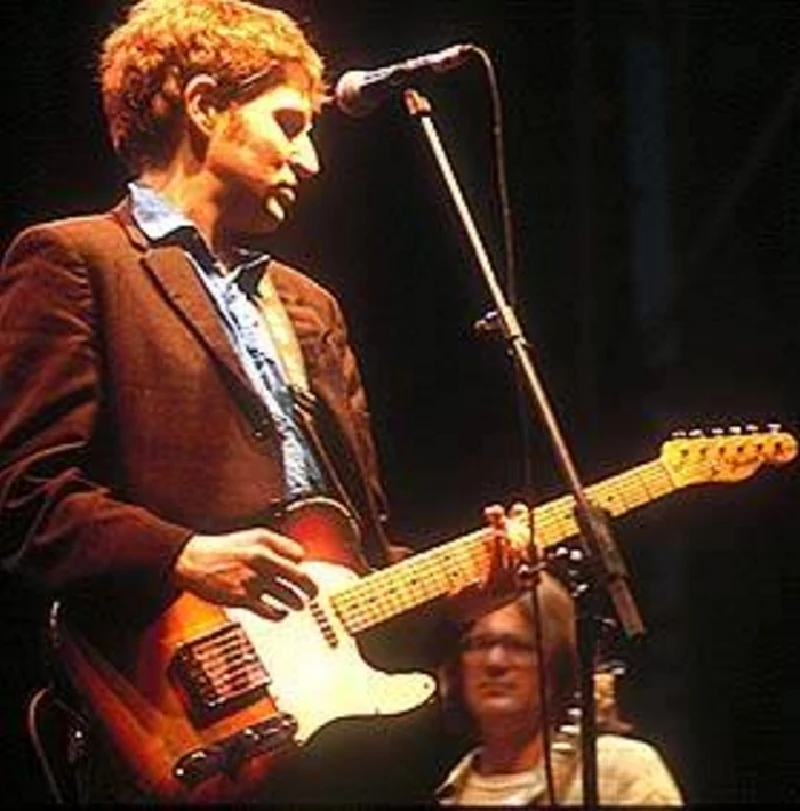
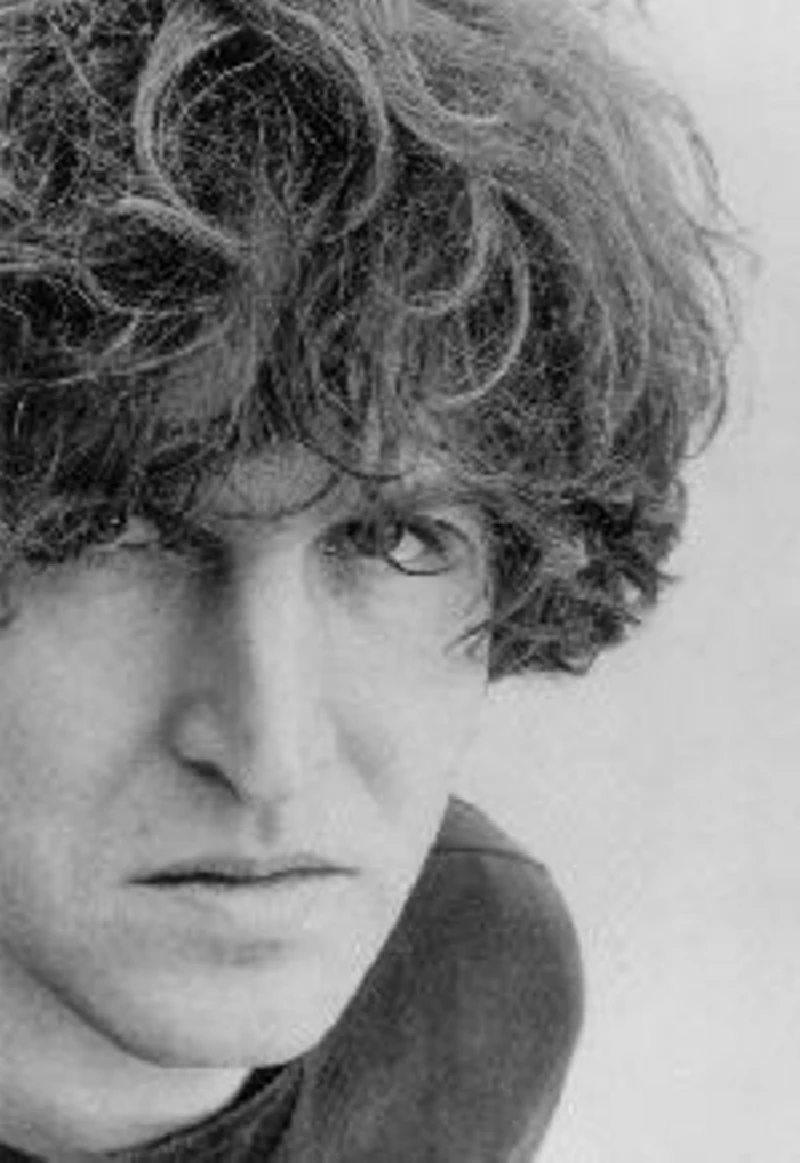
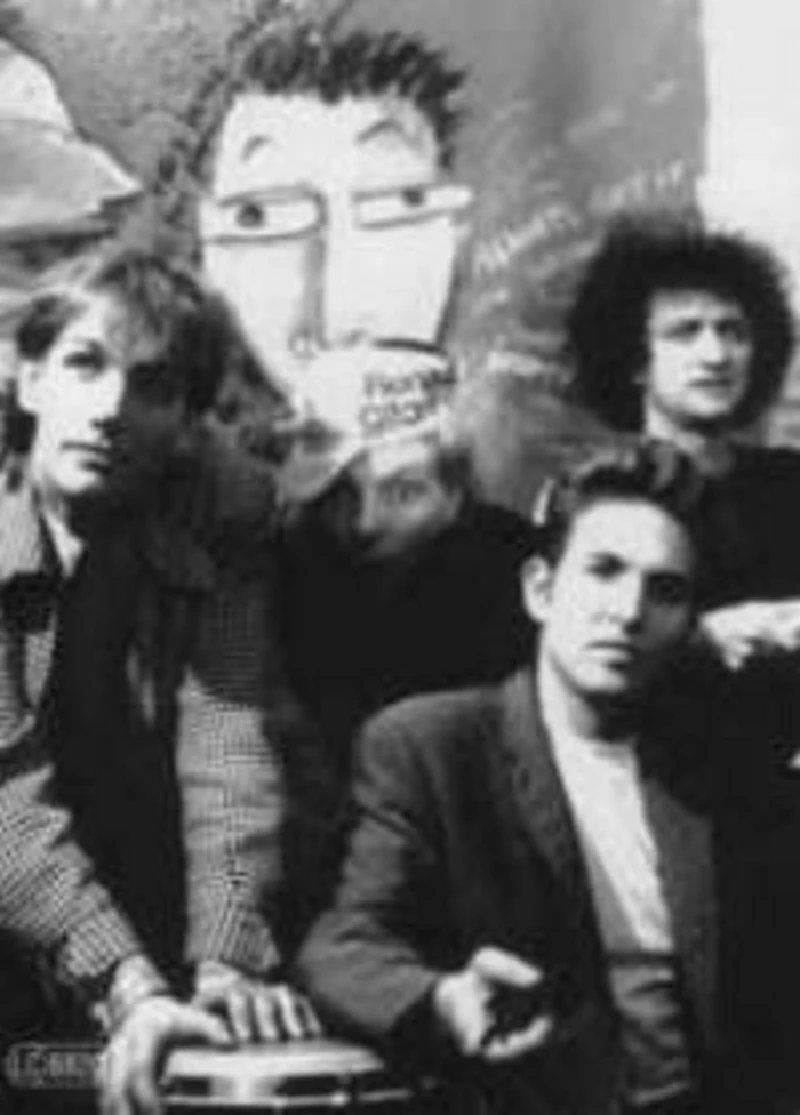
interviews |
|
Interview (2023) |
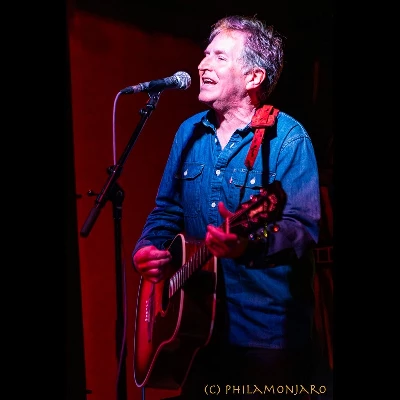
|
| The Dream Syndicate's Steve Wynn talks to Philamonjaro about his new live CD 'Journeyman' and his recent European acoustic tour. |
| Interview (2007) |
| Interview (2003) |
live reviews |
|
Fun House, Madrid, 25/10/2023 |
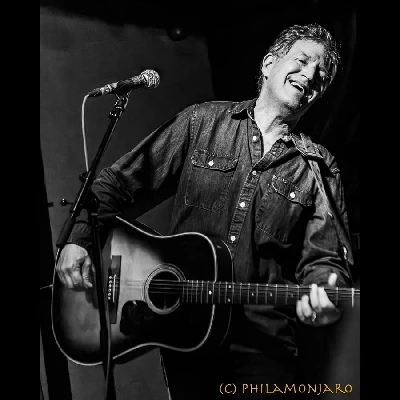
|
| Philamonjaro finds The Dream Syndicate's Steve Wynn making a surprisingly big sound at an acoustic solo gig at The Fun House in Madrid |
reviews |
|
Tick...tick..tick... (2005) |
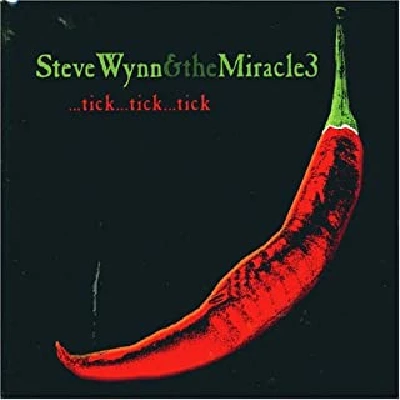
|
| Excellent new album from ex-Dream Syndicate frontman Steve Wynn, which shows itself to be the best album to date in his lengthy solo career |
| Static Transmission (2003) |
most viewed articles
current edition
Spear Of Destiny - InterviewRobert Forster - Interview
Fiona Hutchings - Interview
When Rivers Meet - Waterfront, Norwich, 29/5/2025
Carl Ewens - David Bowie 1964 to 1982 On Track: Every Album, Every Song
Brian Wilson - Ten Songs That Made Me Love...
Chris Wade - Interview
Pistol Daisys - Waterfront, Norwich, 29/5/2025
Credits - ARC, Liverpool, 17/5.2025
Nils Petter Molvaer - El Molino, Barcelona, 24/4/2025
previous editions
Heavenly - P.U.N.K. Girl EPBarrie Barlow - Interview
Boomtown Rats - Ten Songs That Made Me Love....
Dwina Gibb - Interview
Oasis - Oasis, Earl's Court, London, 1995
Sound - Interview with Bi Marshall Part 1
Beautiful South - Ten Songs That Made Me Love...
Trudie Myerscough-Harris - Interview
Manic Street Preachers - (Gig of a Lifetime) Millennium Stadium, Cardiff, December 1999
Serge Gainsbourg - Ten Songs That Made Me Love...
most viewed reviews
current edition
Peter Doolan - I Am a Tree Rooted to the Spot and a Snake Moves Around Me,in a CircleGarbage - Let All That We Imagine Be The Light
Vinny Peculiar - Things Too Long Left Unsaid
Little Simz - Lotus
John McKay - Sixes and #Sevens
Suzanne Vega - Flying With Angels
HAIM - I Quit
Vultures - Liz Kershaw Session 16.06.88
Billy Nomates - Metalhorse
Eddie Chacon - Lay Low
related articles |
|
Dream Syndicate: Interview (2017 |
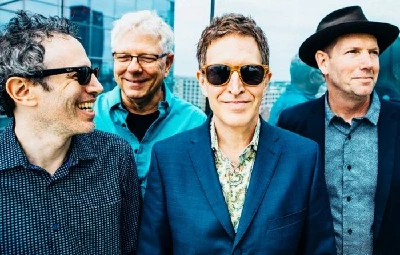
|
| John Clarkson speaks to vocalist and guitarist Steve Wynn about his decision to reform his seminal 80's alternative rock act the Dream Syndicate and 'How Did I Find Myself Here?', their first album in nearly thirty years which will come out in September |
Pennyblackmusic Regular Contributors
Adrian Janes
Amanda J. Window
Andrew Twambley
Anthony Dhanendran
Benjamin Howarth
Cila Warncke
Daniel Cressey
Darren Aston
Dastardly
Dave Goodwin
Denzil Watson
Dominic B. Simpson
Eoghan Lyng
Fiona Hutchings
Harry Sherriff
Helen Tipping
Jamie Rowland
John Clarkson
Julie Cruickshank
Kimberly Bright
Lisa Torem
Maarten Schiethart